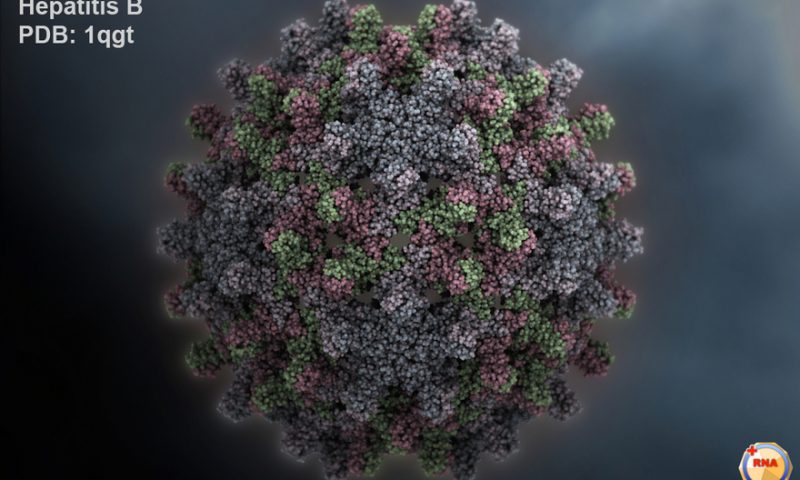At a time that hepatitis B programs seem to be dropping like flies, Vir Biotechnology has some good news. Its gene-silencing drug cut levels of the hepatitis B surface antigen in a small phase 2 study in patients already taking antiretroviral drugs.
The drug, VIR-2218, is designed to block expression of all hepatitis B proteins, including its surface antigen, HBsAg. The prospect was called ALN-HBV-02 before Alnylam licensed it to Vir in 2017 as part of an infectious disease deal worth up to $1 billion. It was the first of the partners’ programs to enter the clinic and the first of a new generation of siRNA meds made with Alnylam’s ESC+ technology, which is designed to reduce the drug’s side effects.
The study tested four dose levels of VIR-2218 in 24 patients who were receiving nucleos(t)ide reverse transcriptase inhibitor therapy to block the hep B virus from replicating. The patients received two doses of the drug—20, 50, 100 or 200 mg—a month apart. After 6 months, all four doses led to reductions in HBsAg, the surface antigen that shows whether a person is infected with hepatitis B. The size of the effect grew with the size of the dose, with the 200-mg dose performing the best.
“The rapid and sustained dose-dependent knockdown of surface antigen observed in this trial with only 2 doses of VIR-2218 is impressive,” Edward Gane, M.D., a professor of medicine at the University of Auckland, New Zealand, said in a statement. What’s more, the responses were seen in patients who had a different Hep B antigen, HBeAg, in their blood. This antigen circulates when a Hep B patient is infectious.
“Notably, this response was seen in both the HBeAg- and HBeAg+ patient groups, demonstrating that this single siRNA can knock down HBsAg in patients regardless of the stage of their disease,” Gane added. “Novel agents like VIR-2218 that reduce the high viral antigen burden associated with chronic HBV infection will likely become the cornerstone of future functional cure regimens.”
A functional cure for Hep B would cut levels of the virus’ surface antigen and DNA to undetectable levels—and keep them there six months after the patient finished treatment. There are several antivirals approved to treat chronic hepatitis B, as well as Roche’s Pegasys, a pegylated interferon, but nothing as successful as the hepatitis C drugs that have been approved in recent years.
Vir’s next step will be to show that knocking down the surface antigen can “result in high rates of functional cure” when VIR-2218 is given to patients in tandem with other drugs, Vir Chief Medical Officer Phil Pang, M.D., Ph.D said. It plans to start its first combination trial, with a shortened course of pegylated interferon, in the second half of 2020.
Vir’s data come after safety concerns led Arbutus to can two early-stage hepatitis B programs and Spring Bank Pharma to pull the plug on its own candidate. Roche ditched an antisense Hep B drug in January, but only after snagging a siRNA drug from Dicerna in a $200 million deal.

